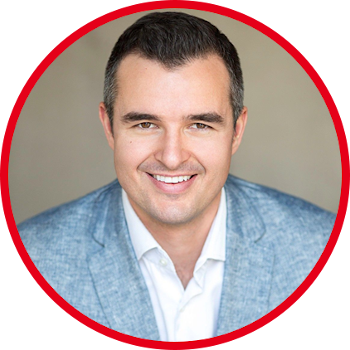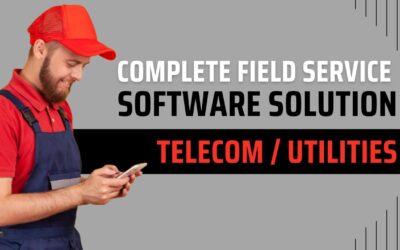So you’ve decided that Salesforce is a fit for you, but you’re lacking talent and/or resources in-house to help you execute the project in-house. Outsourcing is an option and you’re aware that there are tons of Salesforce Partners available, but how do you determine which Partner is suited to YOUR project needs?
When evaluating a partner, these are the main factors you consider:
- Experience
- Resources
- Price
Salesforce Partner Experience
When it comes to evaluating the experience, most customers are unaware that there are public-facing factors of the Salesforce eco-system that can be used to evaluate Partners. To guide evaluation, you can look into:
- The AppExchange: A Business Application Store → Reviews from other customers experiences with Consultants can be found here
- Partner Tier Program
- Salesforce Certifications
You can find Partners and read real customer reviews by accessing the official Salesforce Business Application Store.
Navigate to Listings By Type>Consulting Partners.
You may filter results based on your specific criteria on the left-hand side.
If you already know the Partner name that you are looking for, you can search the name in the Search bar located at the top of the screen.
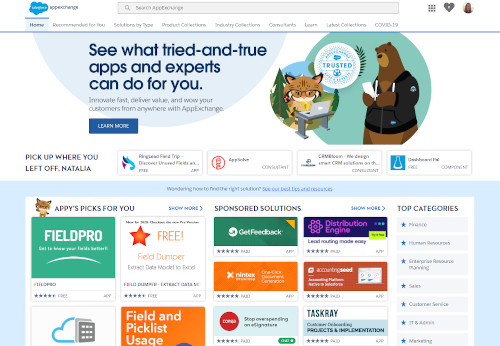
The AppExchange
Salesforce has designed an awards system that recognizes Partners in the eco-system and is meant to also help customers understand if a Partner has the right tools to help you with your goals. Here at AppSolve, we’ve recently hit a new milestone and have achieved Silver Status as a Salesforce Partner. If you’re a customer or even a partner, I know what you’re thinking, What the heck is that?
To start, there are 5 different Tiers that a Partner can be placed in:
The 5 Salesforce Partner Tiers are Global Strategic, Platinum, Gold, Silver and Registered
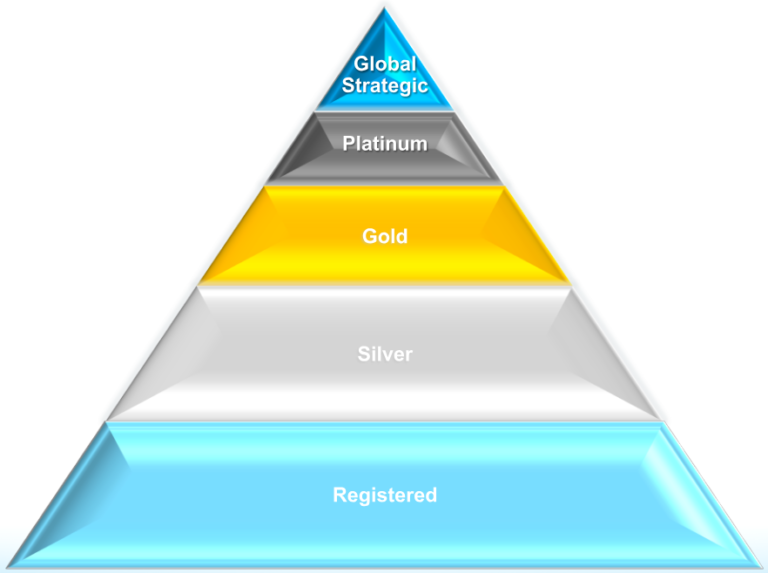
To attain a status, a combination of metrics need to be hit for each Tier:
- $ Amount Pipeline Deals (Co-Sold deals that are done with the Salesforce Sales team)
- Certifications
- Number of Consultants
- Trailhead (Free Educational Program that rewards badges for completion of Educations programs)
- Specializations (Industry Specific – Requires submitting case studies to Salesforce)
- Customer Satisfaction (CSAT)
- Customer Stories aka Case Studies (Requires submitting case studies to Salesforce)
It won’t be too difficult to find a Partner’s status- each status has to be paid for so they’ll likely advertise their status on their webpage. You can also find their status on their AppExchange page. Salesforce Partners The unique Salesforce specific factors have been bolded, and we’ll delve a little deeper to understand what makes up each component.
Certifications
Just like how you are awarded a Diploma/Certificate for completing an education program, you are awarded a Certification if you successfully pass a Salesforce exam. Passing a Salesforce exam indicates that you are knowledgeable in a product and have an understanding of how to apply theoretical knowledge to the application. Certifications can take anywhere from 3 months to 10 years to acquire- this time range is dependant on the amount of hands-on experience required from real-life projects and familiarity with the subject matter.
Here is a list of the 22 certification streams available: http://certification.salesforce.com/credentialoverview
If you know who your project lead is, you can also check if the person holds the certification by verifying their credentials here: http://certification.salesforce.com/verification
It is important to note that your project lead might have experience in implementing your product and are working towards getting the certification. At a minimum, the majority of Partners in the industry will hold Certified Administrator or Advanced Administrator. When evaluating a Partner, it is important to place weight on their experience with the product as opposed to their certifications. A certification is a nice to have that indicates the Partner has met Salesforce Standards.
Note that Certifications are specific to a person not to an entire firm.

Trailhead
This is Salesforce’s free educational program that is available for anyone to access. Styled in a gamification format, where you are awarded Badges for completing a mini-course, “Trail,” which are displayed on your public facing profile. Trailhead can be an indicator of the partner’s commitment to learning. How many badges do they have? What is their learning focused on?
Here is an example of a Trailhead profile page:
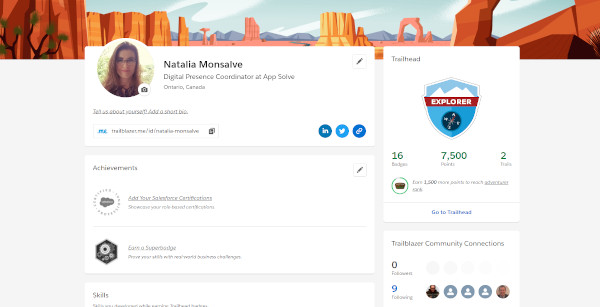
Specializations
Indicates that a Partner has demonstrated industry or Salesforce product expertise. This is contingent on the number of Consultants the company has, the $ amount of deals co-sold with Salesforce, the number of projects logged in Salesforce, the number of success stories submitted to Salesforce and references. If they don’t hit the threshold of consultants they will not qualify regardless of the extent of their experience. A Partner will likely position their Salesforce Specialization on their page or you can locate it on their AppExchange page.
CSAT
If a Partner elects to use Salesforce to send surveys, they will have to manually enter in Project information into Salesforce’s system. Salesforce will then email the customer asking for feedback. This process is outside of the Partner’s systems. Every Partner who goes through this process will have a standardized measure of CSAT as Salesforce will be sending out the same survey to every client. This score is factored into the Partner’s Status.
It is important to note that not every Partner logs their data into the Salesforce’s Partner based community. If a Partner elects to not actively log their work into Salesforce, they won’t receive credit for it and it may not be the best indicator of their work.
We’ve gone over the Salesforce specific measures but don’t go just yet. There’s more. Let’s take a look at some other important factors you need to consider in your Partner evaluation:
Are they familiar with the business problem/objective that you are trying to achieve? You broke down the business objectives and selected the best CRM for your business, now it’s time to take a look at which Partner is the best for your business. Get an understanding of a Partner’s experience with handling similar problems and gauge their understanding of your problems. There won’t be a one size fits all when it comes to creating a solution for different clients and focusing solely on their industry experience is not enough. New problems crop up for your industry, just because someone is equipped to solve your industries’ old problems does not mean they’re equipped to solve your new issues.
Have they had experience working with companies of your size? This is an important question to consider because implementing solutions for a company of 5 versus a company of 5,000 is very different in regards to the quantity and quality of data that will need to be migrated.
Are there integrations that you require? Does the partner have experience with integrating the systems that you require? Integrations add another layer of complexity for organization’s project needs. Some integrations that are available as Managed Packages will be easier than an integration to a homegrown system. Custom development will have to be considered when integrated such systems.
Retention rate? Ideally, you should select to work with someone in the long term. They’ll know your org and will grow with you long term and help service your project needs. Good indicators of Retention Rate are CSAT Score and the complexity of projects- does it go beyond a quick hit implementation?
Salesforce Partner Resources
Ability to Scale? This is important especially for smaller companies experiencing fast growth- can your Partner increase resources for you as you grow? Some Partners have Partnered with other resources to help address different needs that pop up.
Local Presence? Not everyone cares about this, but if you want face to face interaction, you can search for Partners who are locally based on the AppExchange.
Salesforce Partner Pricing
A question I often get asked is, “How much does it cost to implement Salesforce?” The problem with this is that this is the first question I am asked – there’s no context! Partners will have to scope out your project needs before they can even name a price for you. You can say “I’m looking to get started with a Sales Cloud implementation,” and that is still not even close to providing me with the right details to produce a quote. How many users are involved? What is your business use case? What processes do you have in place? What is the quality and quantity of data that you have? Are there integrations required? What is the required training effort for this project? These are just some of the questions we have to consider when producing a quote. You should be prepared to answer these questions. It’s best to heavily consider the Experience & Resource factors into the Pricing factors. Typically, smaller firms will charge less and larger firms will charge more.

Actual footage of a Partner Quoting your Project
Overall, investing time to evaluate Partners is an important endeavor, you need a Partner who will understand your business and who will be by your side for your Salesforce journey, not just today but for years to come. Here at AppSolve, we’ve put together a matrix of our experiences (Products, Type of Project, Integrations, CRM Migrations, Industries) in a nifty table to help you in your evaluation process, check out a comprehensive matrix of our Work Experience here.


